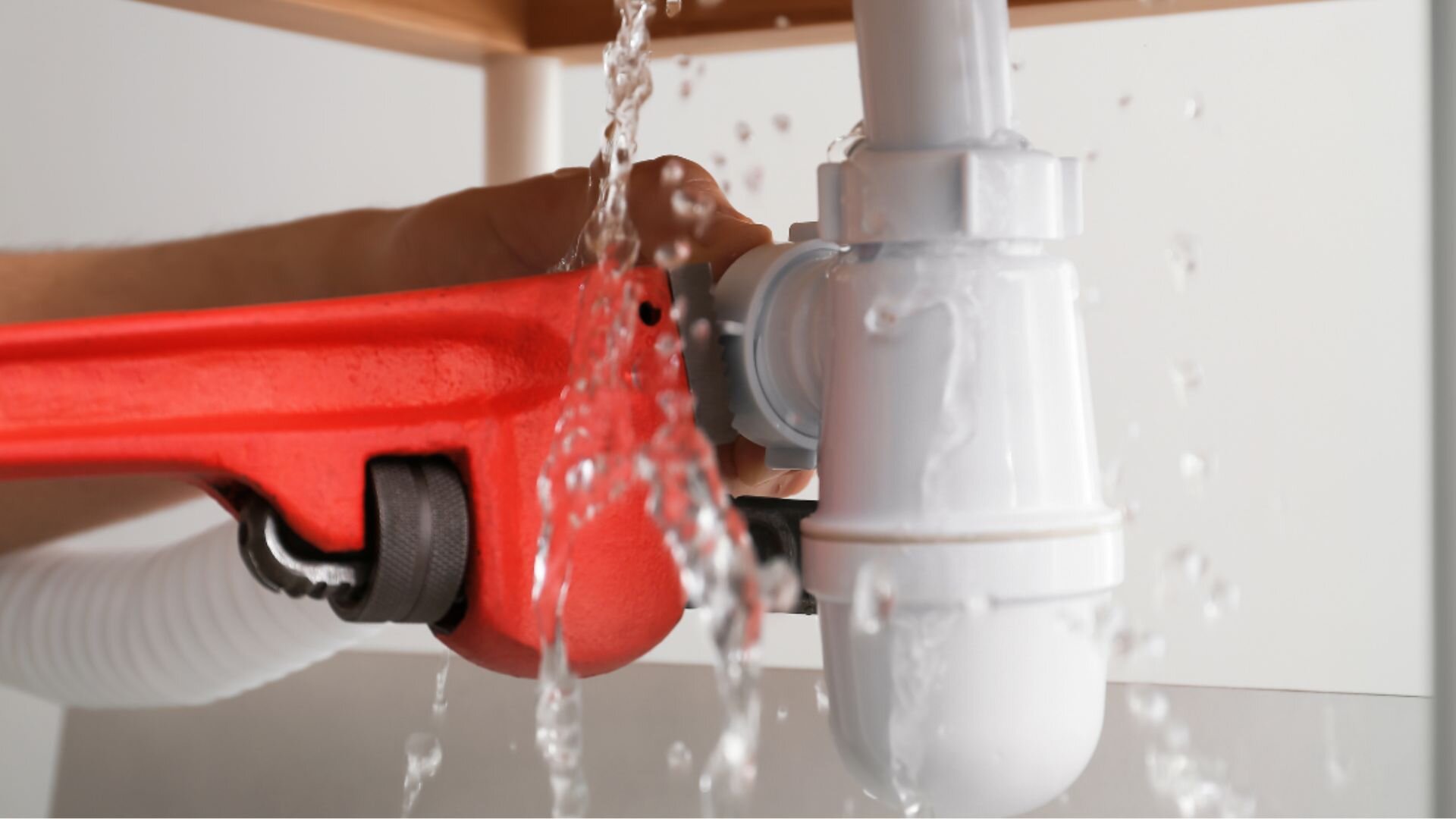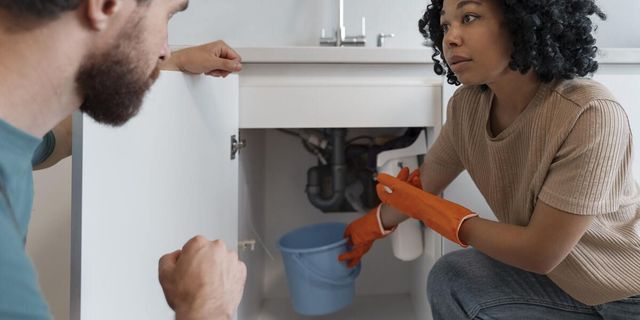What're your opinions regarding What to Do During a Plumbing Emergency?

Plumbing emergencies can strike any time, creating anxiety and prospective damage to your home. Whether it's a ruptured pipeline, a stopped up drain, or a leaky tap, recognizing exactly how to manage the scenario till an expert plumbing technician arrives can conserve you from more issues. This write-up offers essential emergency pipes tips to aid you mitigate damages and regain control throughout a pipes situation.
Shut off the Water
The primary step in any pipes emergency situation is to turn off the water supply. For local problems, such as a leaking tap or bathroom, turn off the shutoff near the fixture. In the case of a significant leak or ruptured pipeline, locate your home's major water shut-off shutoff and turn it off quickly. Understanding the location of these shutoffs in advance can conserve useful time during an emergency situation.
Address Little Leaks with Temporary Solutions
Little leakages can swiftly become substantial problems if left uncontrolled. Utilize these temporary repairs till expert aid shows up:
While these solutions aren't irreversible, they can assist reduce water loss and damage.
Unclog Drains Pipes Safely
A clogged drainpipe can be a discouraging and untidy issue. Below's just how to tackle it:
If these approaches do not work, prevent utilizing too much pressure, as it may intensify the obstruction.
Take Care Of Overflowing Toilets
An overflowing toilet can trigger instant disorder. Below's what you should do:
Shut down Your Hot Water Heater
In particular emergencies, such as a burst pipeline, it's wise to shut down your hot water heater. This protects against getting too hot or damages to the device when water quits streaming. Shut off the power supply to the hot water heater (electrical or gas) and let it cool off to avoid possible dangers.
Momentarily Quit a Ruptured Pipe
A burst pipe can lead to significant water damages in mins. To alleviate the problem:
Call a specialist plumbing professional promptly to attend to the trouble completely.
Deal With Frozen Pipes Carefully
In chillier climates, icy pipes are a typical emergency situation. If you think an icy pipe:
Avoid More Damages
Taking quick activity to reduce damages can conserve you time and money in the future. Here's just how:
. Have an Emergency Pipes Kit
Prepare a standard plumbing emergency situation kit to manage minor problems properly. Your set needs to include:
Having these devices on hand can make a considerable distinction in your ability to handle emergency situations.
Know When to Call an Expert.
While quick fixes can aid temporarily, specific pipes issues need prompt professional interest. Call a plumbing professional if:.
Without delay speaking to a professional ensures the problem is solved appropriately and stops further issues.
Conclusion.
Plumbing emergency situations can be overwhelming, yet with the best expertise and tools, you can take care of the situation successfully until assistance gets here. By turning off the water system, addressing little leakages, and utilizing short-lived fixes, you can lessen damages and maintain your home safe. Bear in mind, these suggestions are momentary solutions; always get in touch with a licensed plumbing to manage the root cause of the problem. Prep work and fast thinking are your finest allies in any kind of pipes emergency.
8 Helpful Tips for Managing Plumbing Emergencies at Home
If your plumbing system hasn’t failed once, wait for it because almost everyone has a story to tell. Sometimes, it could be simple emergencies such as a leaking pipe, a blocked cistern, or even a big burst pipe. In situations like this, you need to have some handy tips to save you some money and from possible damages.
Take care of minor issues early.
Sometimes, you could have avoided an emergency by taking proactive measures while it was still early. Some major plumbing emergencies can be a result of an ignored minor issue. We recommend that you have items like plumbing tapes and other related items. A plumbing tape can allow you to manage minor leaks before the plumber arrives.
Cut off the water supply.
This tip is essential in almost any type of leakage problem. For problems like minor leakages in the toilet or kitchen, turn off the supply that takes water to the affected pipes. If the leakage is a major pipe, you must shut off the supply valve to the entire building. This will help you avoid flooding your home and neighbors if you share a flat.
Know your plumbing system
Folks typically move into a new apartment without understanding the water supply around the building. This can prove disastrous if a water emergency arises and the plumber is far away. The previous tip will prove useless if you don’t practice this one. More importantly, know where your water shut-off valve is located – you’ll need that knowledge to prevent potential home floods.
Have some common handy tools
There are lots of plumbing emergencies that you can handle without hiring a plumber. That’s why you must keep some tools available always. Some tools that you can use to fix simple plumbing emergencies easily include plumbing tapes, screwdrivers, thread seal tapes, plungers, pliers, tape measures, and rubber gloves.
Insulate your pipes from cold
You’ll save yourself from many plumbing expenses if you protect your water pipes from the cold. This is because of the harmful effects that cold weather can have on your pipes. During winter, your pipes can burst from being overly expected to freezing temperatures. So, make sure insulators are there to keep the pipes working correctly.
Avoid practices that will clog your toilet.
Many people indulge in practices that can damage the plumbing system of the entire building. One of these is when they use their toilet to dispose-off garbage. They flush all kinds of things, such as paper towels, bandages, hairs, female sanitary products, etc., down the toilet. This will block your toilet in the long run, incurring unnecessary expenditures. Dump such waste in the trash instead.
Check your dials regularly.
Sometimes, there could be leakages in your home without noticing them in time. So, constantly monitor your water meter dial. If the dial is reading when there is nobody using water, this is an indicator that there is leaking. Check for leaks immediately. Call a plumber as soon as possible if you can’t find any.
https://www.constructionplacements.com/8-helpful-tips-for-managing-plumbing-emergencies-at-home/

I am very focused on Expert Tips for Emergency Plumbing Repairs and I really hope you enjoyed reading my blog post. In case you enjoyed reading our page kindly consider to pass it around. Kudos for your time. Kindly stop by our website back soon.
Click Here